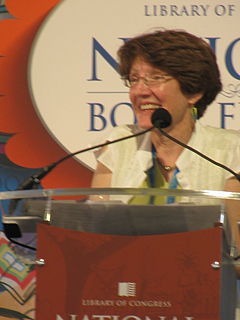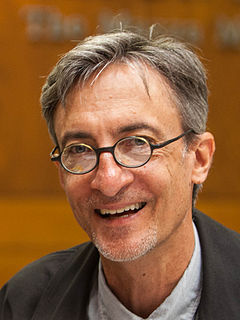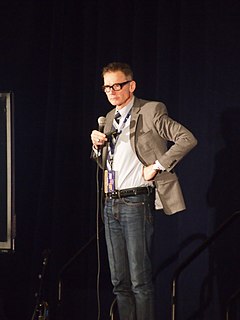A Quote by Michael Eric Dyson
I've written a lot of other books and this book [Tears we cannot stop] was different. I couldn't just say what I wanted to say in the same style that I said it in those other books. I felt compelled to preach.
Related Quotes
Sometimes I read the same books over and over and over. What's great about books is that the stuff inside doesn't change. People say you can't judge a book by its cover but that's not true because it says right on the cover what's inside. And no matter how many times you read that book the words and pictures don't change. You can open and close books a million times and they stay the same. They look the same. They say the same words. The charts and pictures are the same colors. Books are not like people. Books are safe.
I don't change the language for children books. I don't make the language simpler. I use words that they might have to look up in the dictionary. The books are shorter, but there's just not that much difference other than that to be honest. And the funny thing is, I have adult writer friends [to whom I would say], "Would you think of writing a children's book?" and they go, "No, God, I wouldn't know how." They're quite intimidated by the concept of it. And when I say to children's books writers, would they write an adult book, they say no because they think they're too good for it.
I really love being a weirdo who writes a lot of different things for a lot of different ages. I have been considering doing a guide on my website so that a reader who liked one of my books could find the other books that he or she might like, because I know some of the books are really different from the rest.
Much of the way books get classified has to do with marketing decisions. I think it's more useful to think of literary books and sci-fi/fantasy books as existing on a continuum. To oppose them, to suggest that one category excludes the other, always feels bogus to me. The great Leonard Michaels line is "I wanted proximity to darkness, strangeness"? That's what I'd say I want from a book, regardless of where it falls on the fantastical spectrum - that suspense connected to a particular human character, rather than just some mechanized plot.
...Generally people don't recomend this type of book at all. It is far too interesting. Perhaps you have had other books recomended to you. Perhaps, even, you have been given books by friends, parents, teachers, then told that these books are the type you have to read. Those books are invariably described as "important"- which in my experience, pretty much means that they're boring. (words like meaningful and thoughtful are other good clues.)
You know we receive an education in the schools from books. All those books that people became educated from twenty-five years ago, are wrong now, and those that are good now, will be wrong again twenty-five years from now. So if they are wrong then, they are also wrong now, and the one who is educated from the wrong books is not educated, he is misled. All books that are written are wrong, the one who is not educated cannot write a book and the one who is educated, is really not educated but he is misled and the one who is misled cannot write a book which is correct.
You learn so much with each book, but it's what you teach yourself by writing your own books and by reading good books written by other people - that's the key. You don't want to worry too much about other people's responses to your work, not during the writing and not after. You just need to read and write, and keep going.


































